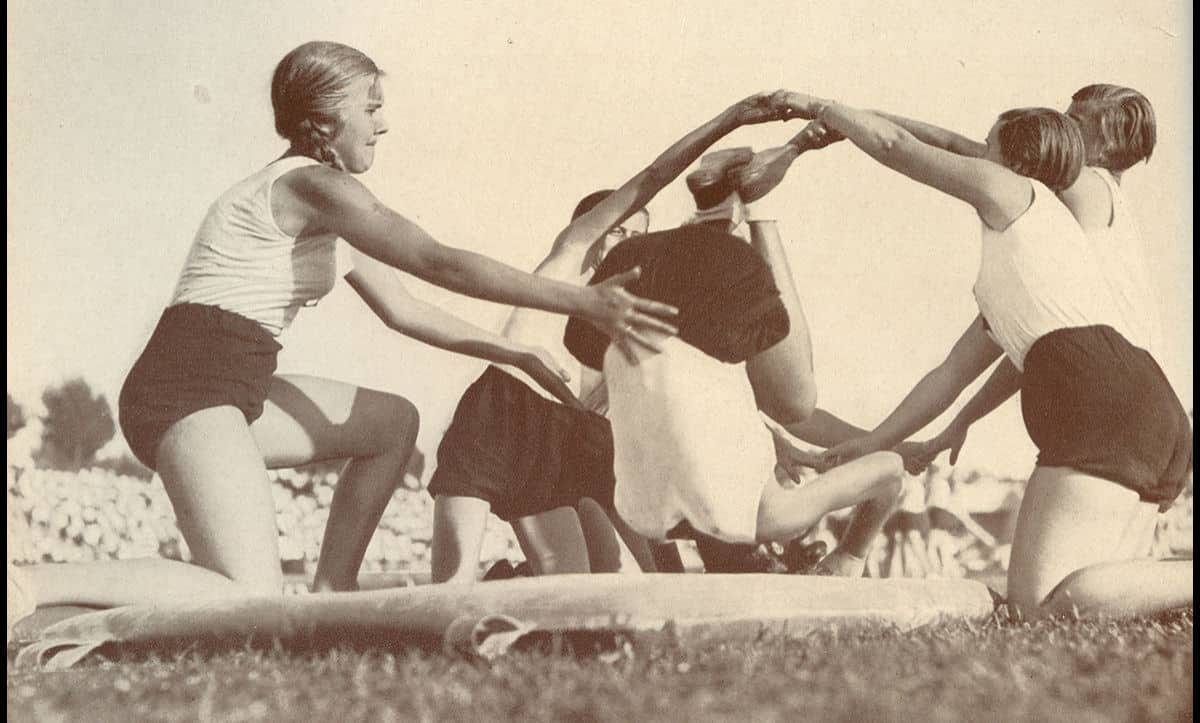An important prefatory note: I have chosen to use the word “breeding” in this translation, against the more common “eugenics” - the biological aspect is paramount and yet not exhaustive; the german term carries connotations not only of biological “eugenics” but also “discipline,” “cultivation.” A largely “forgotten” turn of phrase, being “well bred” - this older sense seeming to convey the meaning “more fully” than “eugenics,” which in modern english is nearly exclusively concerned with “biology.” Further: I have been very pleased with the reception that the recent posts have garnered. Your support is appreciated and every paid subscriber allows me further time (and resources) to source new material, produce new translations, etc. The first 3/5 of this is free, the rest paywalled. Thank you.
The concept of breeding, breeding of a people, which at the present plays such a big role in our country, has two routes, one critical, one productive. One strives for the elimination of the unwanted, the other for an increase in the fertility of desired life material. This second thought is connected with the idea that with a numerical increase of live births coming from a healthy genetic environment, there will be more chances for gifted offspring, but also that with a conscious methodical selection and treatment of the initial partners, a certain direction of talents, types, morphological structures can be exacted and created. The latter would be an idea-forming tendency, a vivification of aspirations, wills, power goals, be it spiritual or political, whose standards and starting point would be the world of ideas and thoughts of leaders. Breeding in and of itself does not exist, the forms of degeneration, like the extinction of species, originate from nature, breeding is against nature, is outwitting nature, is imprinting, political determination, world-view, declaration of worth, act of will.
One cannot see the concept of German breeding in purely national terms, it enhances its ideological world-scope if one sees it in the context of race. So it is the white race in our case. An ancient race, for three and a half millennia the dominant one; in Crete the relocation of oriental advanced civilizations to occidental ones took place, the Minoan empire was the first center, it was mighty 1500 years before Christ. Since then, the Mediterranean has ruled, and later the North: Denmark, England; the empires on the Atlantic: Portugal, Holland, the primacy of power migrated, but Europe ruled.
Presently it is the four states of Italy, France, England and Germany that have carved out the past centuries and on whose shoulders today lies the hegemony of the white race. What are their chances or even their propensity to regenerate, to grow, I don't mean the imperialistic tendencies to grow, but the inner, the procreative, the hereditary, the unfinished? Italy is the oldest empire, destiny - and art-laden like none, which brought Europe the greatest spiritual gifts, but which, as a settled race, discharged its entire, so immense technical vigor not into the biological-selective, but into the stone earthiness of the architectural. France, for fifteen hundred years nationally unified, the most luckless empire, the most fortunate, historically today probably completed, it created Latinity, this unique Romanesque being, the most perfect spiritual space, into which the Occident looked after Hellenism, it is today biologically, when it turns politically away from Europe to the giant block of its North African colonial empire, completely set on race mixture and race blending, thus on dysgenic tendencies. England, about a thousand years old, has insularly produced the most stable physical type, a type almost glassy of Anglicanism, almost specific as to internal and external constitution, complexion and skeleton, completely sedentary and, except at Golf and Henley, biologically immobile. There remains as a nation without completion1 only Germany, which has just become an empire, an enormous racial cauldron with sixty out of a hundred Nordic components, the rest Eastern and Dinaric, a mixture which began fifteen hundred years ago but is still not definitive, with its history always full of tensions, but without resolution, full of attempts, but also always full of failures, and now behind it a quarter of a century of fundamental crises, of real shocks, of an upheaval like no other nation in the world -: Here there are possibilities, fermentations, readiness, flexibility, a kind of breeding latency; here, as the last events have shown, there is still that inner tension, restlessness, devotion to ideas, which could indicate breeding lability and enclose the possibility of designs of a new European type. Here, then, in the Reich, alone among the great peoples of the continent, within the Old World, there would be the possibility of forming a new synthetic alternative, a new high type, and what would be bred here would then probably be the completed legacy and the ultimate splendor of the White Race.
Relatively straightforward, the breeding problem is the question of what the people must rid themselves of to move into a unified future. This problem is discussed today internationally at length. Especially in America, where opinion on this matter is quite radical. According to an expert's report, which was made by a eugenic committee in America, an annual rate of four hundred thousand sterilizations per year is demanded until 1980, by which time about fifteen million inferiors would be eliminated from procreation. As far as Germany is concerned, Lenz, a fundamental researcher on these matters, considers ten out of a hundred sterilizations in each generation to be eugenically correct. Grotjahn2 estimates the total number of inferiors, i.e. people to be eliminated, to be much higher, namely almost one third.
Keep reading with a 7-day free trial
Subscribe to Dispatches from the Past. to keep reading this post and get 7 days of free access to the full post archives.




